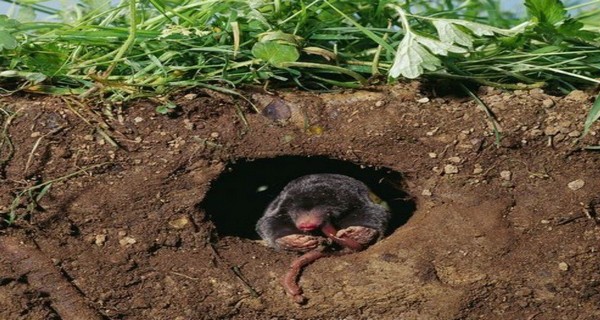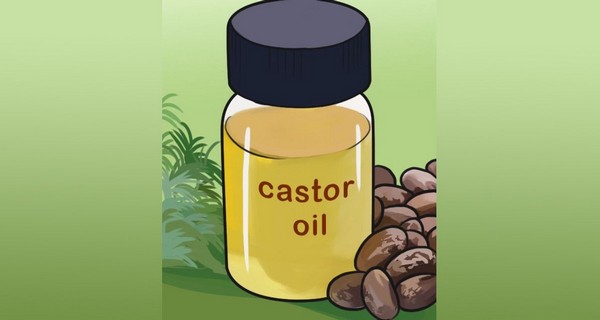Ad Blocker Detected
Our website is made possible by displaying online advertisements to our visitors. Please consider supporting us by disabling your ad blocker.

How To Keep Ground Moles Out Of Your Yard Naturally
Are you searching for effective techniques to eliminate ground moles and protect your lawn, flowerbeds, and garden soil from their destructive behavior?
Ground moles can wreak havoc on your landscape, causing damage to both your lawn and the plants in your gardens and flowerbeds. Their unsightly tunnels not only mar the appearance of your yard but also expose plant roots, often leading to irreparable harm.
Interestingly, ground moles aren’t interested in consuming plants. They are not herbivores. Instead, they have a penchant for feasting on grubs, worms, and other subterranean insects residing beneath your lawn and garden. Their tunneling activities serve as a hunting mechanism to locate these delectable treats.
While ground moles are constantly on the lookout for their next meal, it’s crucial to find methods that keep them at bay without harming the beneficial organisms in the soil, such as earthworms. Resorting to chemical sprays or granules may inadvertently eradicate these helpful creatures along with the grubs.
Fortunately, there are several effective and natural approaches to mole control. Here are three of the best methods to safeguard your lawn and flowerbeds from mole-induced damage.
How To Identify Mole Damage
In contrast to ground squirrels and chipmunks that cause visible damage above the soil, moles wreak havoc beneath the surface.
The most evident indication to watch for in your yard or garden is the presence of raised tunnels. As moles traverse underground, the soil is pushed up, forming elevated ridges on the surface that resemble elongated snakes. These raised tunnels serve as clear evidence of mole activity.
Another sign to be aware of is the emergence of dead grass and plants along a particular path. As moles journey through the soil, they disturb the roots, often resulting in the death or injury of plants above the ground.
An additional clue is the presence of soil piles on the ground’s surface, indicating the entrance to a tunnel. Similar to how a shovel creates mounds of soil when digging a hole, moles generate these “molehills” at the openings of their tunnels. Spotting these soil piles serves as a reliable indicator of mole presence.
Tips for Naturally Stopping Ground Moles
It’s important to note that moles are not entirely detrimental to homes and properties. In fact, they play a beneficial role by consuming significant quantities of larvae and grubs that are often considered unwanted in gardens.
Among their favored meals are the grubs of the notorious Japanese Beetle. Additionally, moles help control pests in the garden by preying on the larvae of tomato hornworms and other garden pests.
However, the issue with moles lies in their tunneling activities. They possess remarkable digging abilities and can construct tunnels up to 160 feet in length in just one night. While these tunnels do contribute to soil loosening and aeration, they can be less than desirable for yards and landscapes. They not only pose a tripping hazard and make mowing difficult, but they can also damage previously thriving crops or grass that was in their path.
6 Natural Methods To Get Rid Of Ground Moles
Vinegar – Stop Ground Moles

Vinegar is a versatile product that can be used for various purposes. It can be used for cooking, cleaning, and surprisingly, as a means to deter ground moles. The great thing about vinegar is that it effectively drives moles away without causing harm to them, your pets, children, or the environment.
Among the different types of vinegar, apple cider vinegar is particularly effective in dealing with ground moles.
Vinegar is known for its strong and pungent odor and taste. Additionally, the acidic nature of vinegar can create a mild burning sensation for moles that come into contact with it.
You can use vinegar as a preventive measure, or apply it by spraying or pouring directly into tunnel openings. For optimal results, opt for apple cider vinegar instead of milder varieties like white vinegar. (Product Link: Apple Cider Vinegar)
Creating The Mixture
To prepare the mixture, combine one part vinegar with two parts water in a spray bottle, handheld sprayer, or bucket. You can either pour or spray this mixture into the tunnel openings where moles have been active. Make sure to thoroughly saturate the soil both around and inside the holes. For optimal results, repeat this process every few days until the moles are no longer present.
Please note that if you opt for a stronger acidic solution using vinegar, exercise caution when spraying around your grass and near vegetation. Horticultural vinegar, with an acid concentration of approximately 20-45%, can harm neighboring plants and grass. It is advisable to stick to the typical store-bought vinegar with 5% acidity for safer outcomes in your landscape.
Motion & Sound & Vibration Traps- Stop Ground Moles
Ground moles are highly averse to vibrations and sounds in their vicinity, as these indicate the presence of potential predators. Prolonged exposure to such noises or vibrations typically prompts them to vacate the area.
Utilizing a continuous stream of vibration or noise can serve as an efficient deterrent against ground moles. However, it is important to note that not all methods of generating sound or vibration are equally effective.
While options like pinwheels or stakes with small chimes inserted into the soil can produce sound and vibration, they often fall short in delivering consistent and potent results. This is particularly true when there is no air current to propel them effectively.
Solar Mole Repellers – Stop Ground Moles
Solar mole repellers revolutionize the generation of sounds and vibrations in the ground. Powered by solar energy, these devices emit pulsating vibrations and sounds in regular intervals, ensuring a constant supply of movement and noise within the soil.
When strategically positioned, these devices can effectively deter moles and compel them to vacate the area. While a single spike might not suffice to keep them away, deploying multiple solar spikes in conjunction can enhance their effectiveness in driving moles out.
Discovering the optimal placement may require some experimentation, but once established, these repellers can establish a formidable barrier against moles. Moreover, they operate solely on solar power, eliminating the need for cords or external power sources.
Product Link: Mole Repellent Solar Powered 4 Pack Sonic Mole Deterrent Spikes
Castor Oil Spray – Stop Ground Moles

Castor oil offers another effective solution for deterring ground moles from your property. The castor bean, known for its repellent properties to ground moles, has been utilized strategically by many gardeners to prevent their entry.
If you prefer not to plant castor bean plants, which can be invasive, you can opt for a highly effective alternative: a castor oil spray for the ground. This treatment acts as a natural deterrent when applied to the soil.
To create the spray, combine 6 ounces of castor oil with a gallon of water and add a few drops of liquid dish soap. The dish soap helps the mixture adhere to foliage when sprayed. Use a sprayer to apply a light mist, covering the affected area.
For enhanced effectiveness in deterring ground moles, spray the entrance and exit holes with the solution as well. The scent of the spray helps discourage ground moles from frequenting the treated areas. To maintain its effectiveness, it’s necessary to reapply the spray after heavy rain, watering, or a substantial amount of dew. Product Link: Pure Organic Castor Oil

